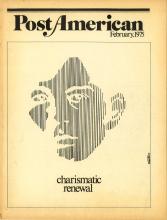The preceding essay in this series was devoted to the emergence of the Wesleyan Methodist Connection of America. There the career of Orange Scott was traced to show how his growing concern about slavery and resulting abolitionist activities increasingly put him at odds with Methodist leadership that attempted to crush such disruptive "agitation." The result was a rare phenomenon—a denomination founded in protest against a social evil and the accommodation of the churches to it.
This essay focuses on another early Wesleyan Methodist, Luther Lee. This man left behind several volumes of sermons (The Evangelical Pulpit, 1854-1864) and a number of other sermons published individually in pamphlet form. These materials provide some insight into the preaching of a church body devoted wholeheartedly to reform activity in an era in which the "social gospel" was still considered to be a part of "evangelicalism."
Read the Full Article

